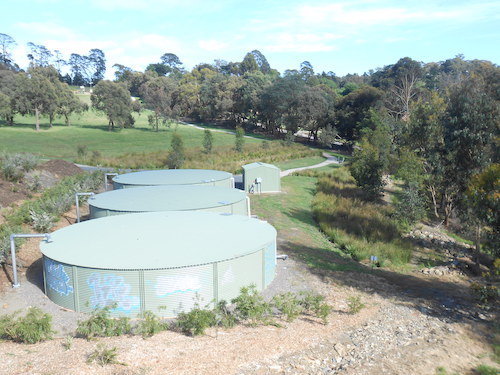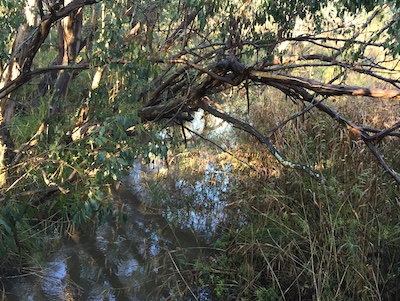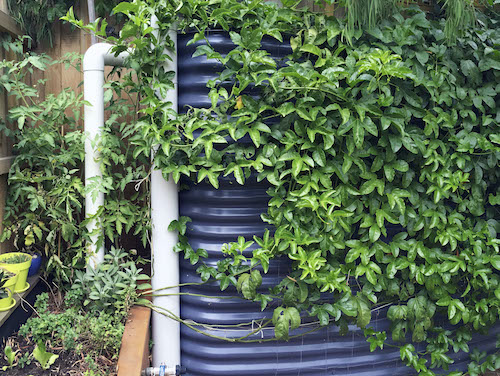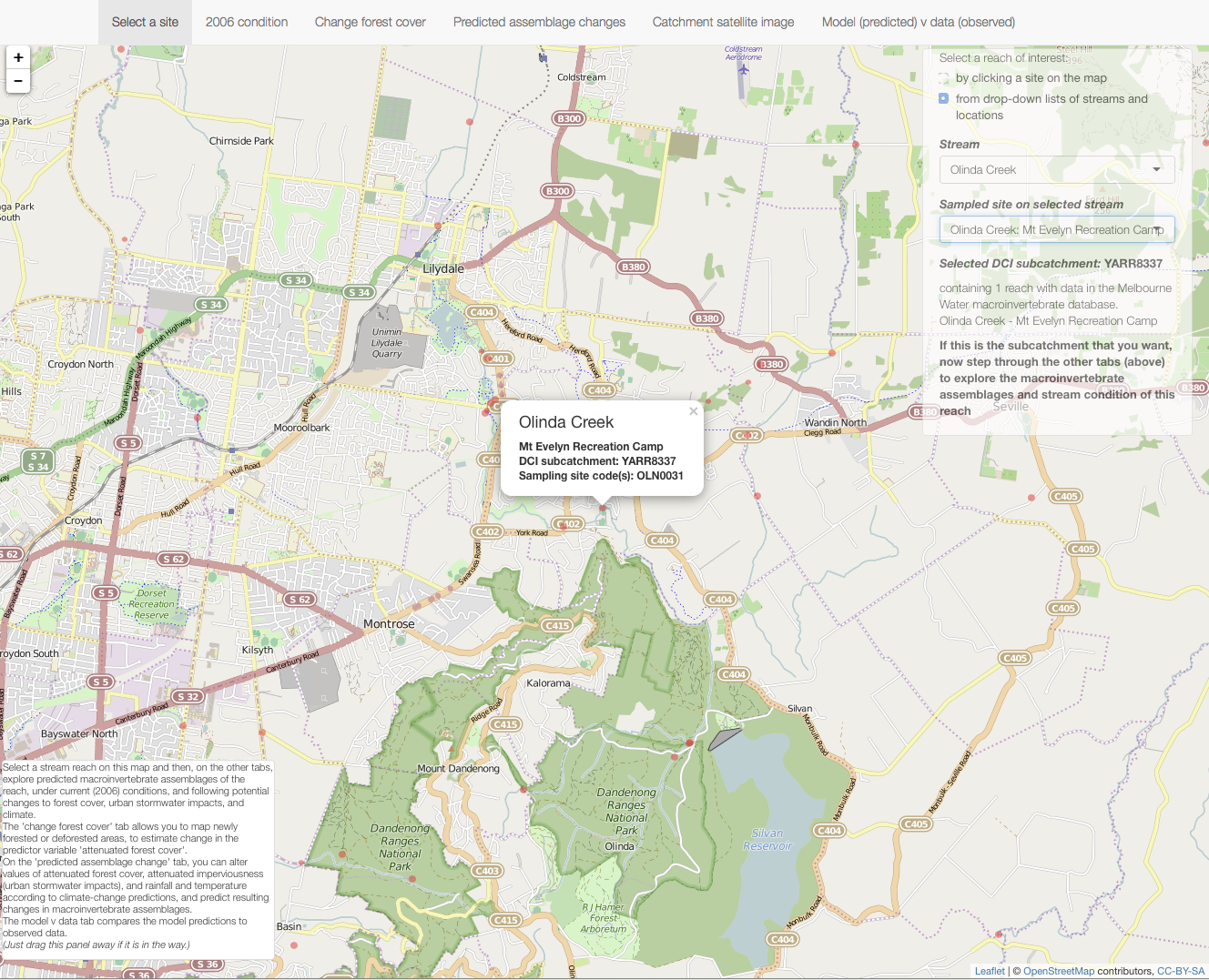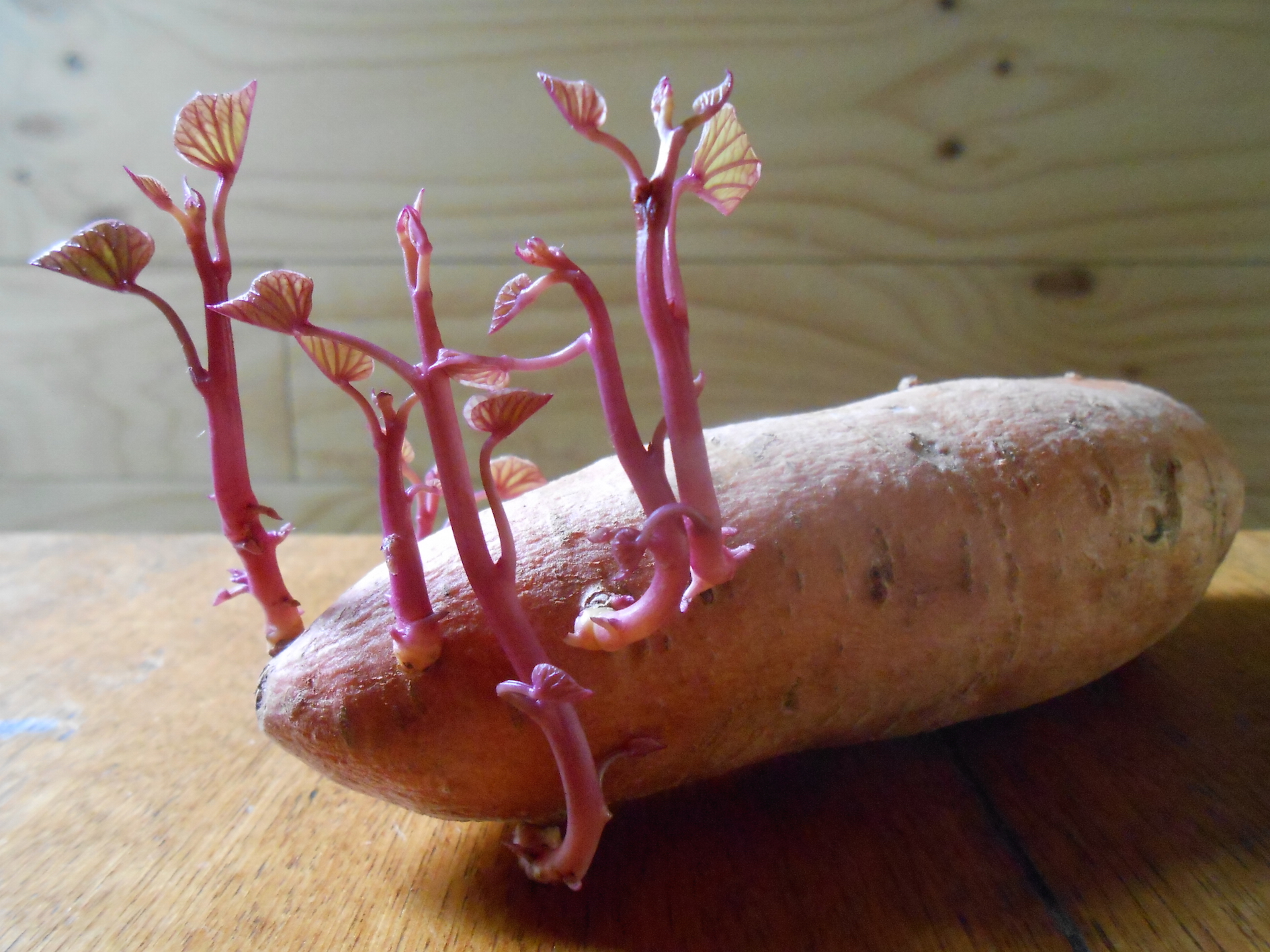Featured paper
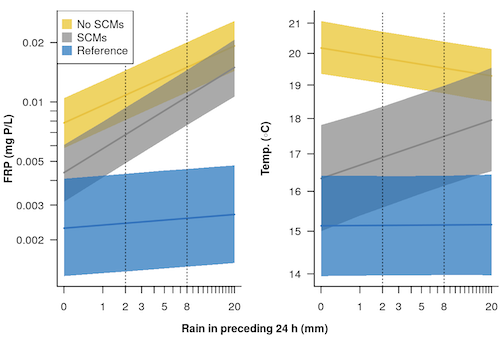 Walsh, C. J., Imberger, M. J., Burns, M. J., Fletcher, T. D., & Bos, D. G. (2022). Dispersed urban-stormwater control improved stream water quality in a catchment-scale experiment. Water Resources Research, e2022WR032041.
Walsh, C. J., Imberger, M. J., Burns, M. J., Fletcher, T. D., & Bos, D. G. (2022). Dispersed urban-stormwater control improved stream water quality in a catchment-scale experiment. Water Resources Research, e2022WR032041.An outcome of the Little Stringybark Creek experiment, which aimed to test if creeks downstream of stormwater drainage can be restored. 100s of rain-gardens that allow to water soak into surrounding soils and be taken up by plants, and rainwater tanks for harvesting, were installed in two suburban catchments. Comparing water quality before and after installation, in experimental streams, and in urban control and reference forested streams, we showed that filtering and harvesting stormwater reduced summer temperatures and reduced concentrations of phosphorus and nitrogen, critical contaminants for healthy streams. The reductions were greatest in dry weather, and after small amounts of rain. To achieve water quality similar to forested streams, we need rain-gardens and harvesting systems that catch runoff from nearly every roof and road upstream. Achieving that will require reserving space near pipe outlets to streams for final treatment systems, and finding ways to use the excess water generated by roofs and roads. DOI: 10.1029/2022WR032041
Recent posts
The LUMaR tool
Walsh and Webb (2013) developed a new index of stream condition, LUMaR*, based on their distribution models of 60 families of macroinvertebrates across the Melbourne region. The models allow prediction of the effects of loss (or gain) of forest cover and of conventionally drained urbanization on the occurrence of the 60 families….
The public good in using more (tank) water
In today’s update of my raingarden diary, I report on deliberately increasing our demand for water from our rainwater tank (by disabling the half-flush option on our toilets). Our increase in demand from our tank by 20–25 L a day might seem to go against everything our water authorities tell…
Melbourne stream macroinvertebrate prediction tool
Sweet potato art
This site is maintained by Chris Walsh,
Principal Research Fellow in the Waterway Ecosystem Research Group,
School of Ecosystem and Forest Sciences at The University of Melbourne.
He lives in Richmond, where he obsesses about his
house's stormwater runoff.
His research contributes to the Melbourne Waterway Research-Practice Partnership.
Other resources for Chris's research include:
Google Scholar,
The Open Science Framework,
GitHub,
The University of Melbourne's 'Find and Expert' page.
Contact details.
Waterway Ecosystem Research Group,
School of Ecosystem and Forest Sciences
The University of Melbourne Burnley Campus
Building 903, 500 Yarra Boulevard
Burnley Victoria 3121, Australia
Tel: +613 8344 9155
Fax: +613 9349 4218
e-mail: cwalsh@unimelb.edu.au
For directions to the WERG,
click on the pointer in this version of the map.
Privacy policy








